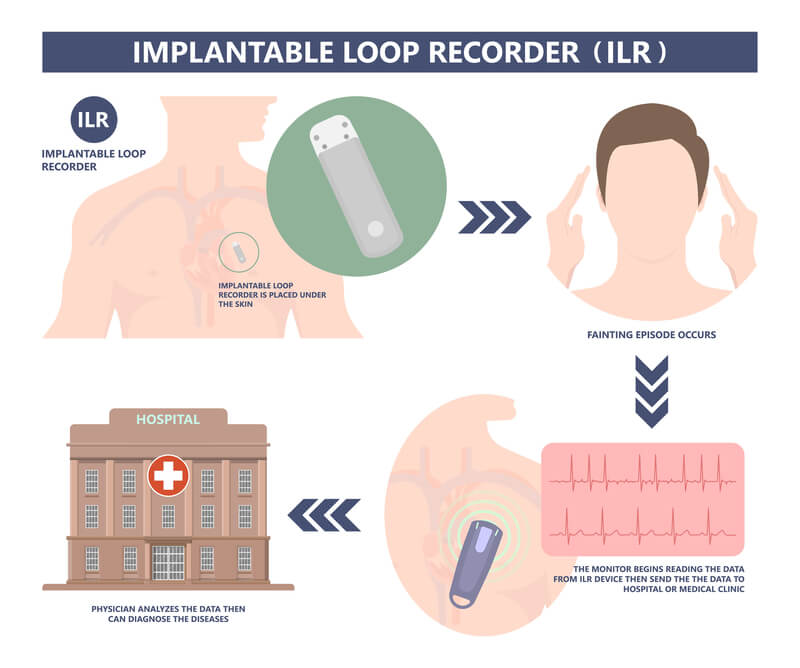
An implantable loop recorder, or ILR, is a heart recording device that goes under the chest skin. Loop recorder implantation is the procedure for implanting the device under your skin.
The implantation is a minor procedure that your cardiologist, Dr. Lilian Ahiable, will perform. She will place the device under your skin. It goes directly on your chest wall, right over the heart. The device records the electrical signals from your heart. Your cardiologist can download this information to see how your heart works.
An ILR is designed to last up to three years, so it can provide your cardiologist with a wealth of data and information to analyze.
There are a few reasons Dr. Ahiable may recommend a loop recorder implantation.
If you have had repeated fainting episodes, a loop recorder implantation can provide insight into why you are fainting. Repeated fainting spells are harmful to your physical and emotional health.
Also, your risk of sudden death increases if you experience repeated fainting. A loop recorder implantation can be a good tool for understanding the cause of your fainting episodes and getting proper treatment.
If you have been experiencing unexplained falls, a loop recorder implantation device can let your doctor or cardiologist figure out if your falls are related to a heart condition.
If you had a stroke, but the reason for it isn’t clear, a loop recorder can potentially provide insight into the cause of the stroke. Sometimes, arrhythmias may be responsible for a stroke, and a loop recorder can detect this.
Heart palpitations occur when you feel like your heart is beating too fast or too hard. It can feel like your heart is skipping a beat or fluttering. You can feel them in your chest, throat, or neck.
In most cases, heart palpitations are not of concern by themselves. However, they can signify a more serious underlying heart condition, and a loop recorder implantation can help your cardiologist diagnose this.
Before your procedure, you may have to take other tests, such as an ECG. You may need to avoid eating or drinking after midnight before your procedure. Your doctor will inform you about all necessary precautions before the procedure.
Inform Dr. Ahiable about all the medications you are currently taking. She will advise you if any need to be stopped before the procedure.
This is a minor procedure. Dr. Ahiable will walk you through what to expect.
You will be given medication to help you relax, followed by a local anesthetic to numb your skin. After that, a small incision will be made on your skin. This incision is made on the upper left side of your chest.
Then, the doctor will create a small pocket under your skin. The loop recorder will be placed in this pocket. The entire machine is about the size of a AA battery when flattened.
The incision will be closed with sutures, and a bandage will be placed over the area.
There is minimal downtime, and most patients have a quick recovery after the procedure. You can go home on the day of the procedure, and it is ideal to have someone drive you home. Get enough rest. You can ask for pain medication if you feel discomfort after the procedure.
The loop recorder is programmed to record your heart rate if it is faster or slower than normal. Some devices come with a handheld activator that you can use to notify the recorder to save specific heart signals.
Most people keep the device implanted for two to three years. When the device is no longer needed, you undergo a similar procedure to remove it.
We can monitor what is happening with your heart with a loop recorder implantation device so you can clearly see what is happening with your heart.
Let the team at Sydnor Cardiovascular Center, led by Dr. Ahiable, take care of your heart health. To schedule an appointment, call 727-300-2282 or request an appointment online.